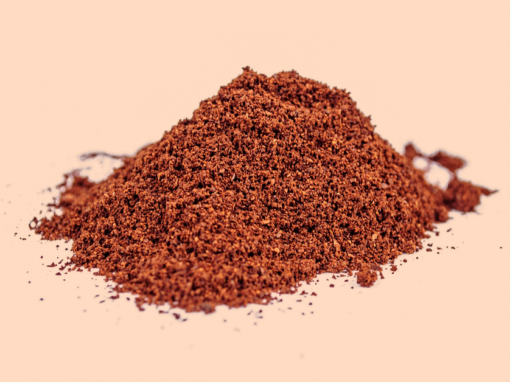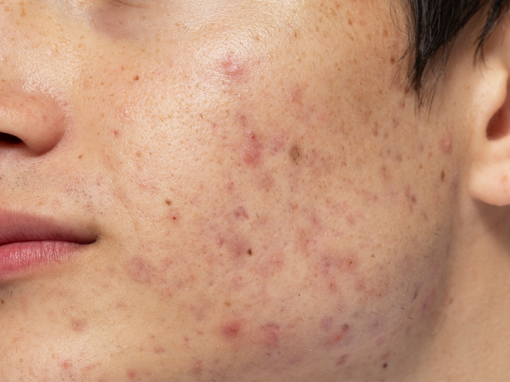Do you ever experience dry or flaky skin on your face or anywhere else on your body? It can make your skin feel irritated and it tends to occur when our skin doesn’t have enough water and natural oils, which are responsible for keeping our skin soft. Dry patches can appear on different parts of our bodies, including our faces.
In this article, we will discuss the most common reasons why our skin becomes dry or gets affected by certain environmental factors and certain health conditions.
What is dry skin?
Dry skin, also known as xerosis or xeroderma, is the most common skin condition that affects people of all ages. The skin needs natural oil and water to keep itself soft and stretchy. Lack of moisture, oils, and water can dry out the skin. It makes the skin look and feel rough, itchy, flaky, or scaly. It can be caused by a variety of factors, including cold or dry weather, sun damage, harsh soaps, and overbathing.
There are several symptoms of dry skin ranging from average to severe, including patches of itchy and scaly skin, cracks in the skin, loose wrinkles skin, and peeling skin.
Most common 8 reasons for dry skin
Skin is the body’s first line of defence which fights against bacteria and viruses and takes care of harmful environments. Hence it is necessary to know what causes dry skin and what actions can be taken to prevent skin from getting dry.
- Hard deodorants and cleansing products
Fragrance tends to make the skin itchy and dry, so avoid using products filled with excessive fragrances. Fragrances provide exposure for the skin to react.
- Heat
Excessive exposure to heat, such as from the sun or hot showers, can cause our skin to lose moisture and become dry. It’s important to protect our skin from prolonged sun exposure and avoid using excessively hot water while bathing or washing our face.
- Dehydration
When we don’t drink enough water, our body becomes dehydrated, and this can affect our skin as well. Dehydration reduces the moisture content in our skin, leading to dryness. It’s crucial to stay hydrated by drinking an adequate amount of water throughout the day.
- Harsh soap and hard water
Some soaps contain strong chemicals that can strip away the natural oils on our skin, causing it to become dry and irritated. Additionally, hard water, which contains high mineral content, can leave a residue on the skin and make it feel dry and rough. Opting for gentle, moisturising cleansers and using soft water can help alleviate these issues.
- Aging
As we get older, our skin undergoes natural changes. The production of natural oils decreases, and the skin barrier weakens, leading to increased dryness. Using hydrating skincare products and moisturisers specifically designed for mature skin can help combat dryness associated with ageing.
- Kidney disease
Certain kidney conditions can affect the body’s ability to maintain proper fluid balance, leading to dry skin. When the kidneys are not functioning optimally, it can impact the overall hydration levels in the body, including the skin. If you have kidney disease, it’s important to work with your healthcare provider to manage the condition and address any related skin concerns.
- Diabetes
Diabetes can affect the body’s circulation and damage nerves responsible for skin hydration. High blood sugar levels can lead to dry, itchy skin, particularly in areas prone to moisture loss, such as the legs and feet. Proper diabetes management, including blood sugar control and regular skincare routines, can help alleviate dry skin symptoms.
- Genes influence
Our genes play a role in determining our skin’s natural moisture levels. Some individuals may have naturally drier skin due to genetic factors. While we cannot change our genes, we can focus on maintaining a proper skincare routine that includes gentle cleansing and regular moisturization to support the skin’s hydration.
Conclusion
Remember, if you have persistent dry skin that causes discomfort or if you have underlying health conditions, it’s always recommended to consult a dermatologist or healthcare professional for a thorough evaluation and personalised advice.
FAQs related to dry skin
What deficiency causes dry skin?
A zinc deficiency can cause dry skin, as well as other symptoms like brittle hair and nails and lesions on the skin.
How can I stop my skin from being so dry?
Using a gentle cleanser, avoiding fragrances and harsh soaps, staying hydrated, protecting skin from the sun, and using a moisturiser can all help to keep skin from becoming dry. Additionally, if you have underlying medical conditions that could be contributing to dryness, like diabetes or kidney disease, it’s important to take the necessary steps to manage those conditions.
Can stress cause dry skin?
Stress can cause hormones to become imbalanced in the body, resulting in a decrease in natural oil production and leading to dry skin. To reduce stress, activities such as yoga, meditation, or breathing exercises may be helpful. Additionally, using soothing skin care products and moisturisers can help keep your skin hydrated.
This article is for informational purposes only and does not constitute medical advice. The information contained herein is not a substitute for and should never be relied upon for professional medical advice. Book a consultation with andSons medical team to learn more about healthcare treatments here.


